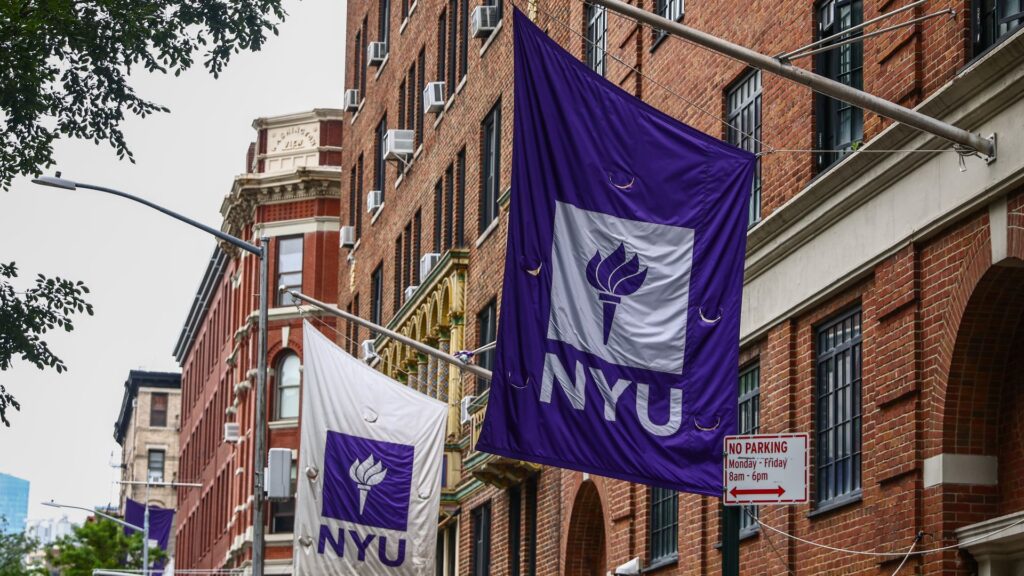Dozens of New York University law students say they have been barred from campus unless they sign an agreement not to protest. Thirty-one pro-Palestinian students told The Intercept they received a “Use of Space Agreement” that restricts them from participating in demonstrations on school grounds.
Students must sign agreement to not protest on campus
In the agreement, the students are classified as “persona non grata,” or PNG, meaning they can’t enter certain buildings and facilities. Now, signing the agreement is the key to allowing each NYU student back on campus to take their final exams. They also no longer have access to campus amenities like the gym, health services or religious facilities, according to the barred students.
According to NYU, the students took part in sit-ins on March 4 and April 29, protesting outside the law school dean’s office and inside the law library. The demonstrations followed NYU’s suspension of more than a dozen students in late 2024 after a protest calling on the university to divest from Israel and support Palestinian rights.
On March 4, law students held an eight hour sit-in supporting the suspended students. That same day, participants were notified they were under review by the law school’s executive committee for violating school policy. A second sit-in on April 29 led to similar disciplinary emails.
What does NYU policy say about protests?
NYU’s protest policy allows some demonstrations but prohibits others. Amplified sound, encampments and protests near classrooms or residence halls are banned. However, peaceful sit-ins, vigils that follow building-specific rules and handing out flyers are permitted, according to the university’s website.
Multiple students sent The Intercept emails they received from NYU, saying each student is under investigation for failure to comply with public safety when asked to leave the sit-in protest. Per NYU’s policy, students cannot stage protests inside campus libraries. The students claim the protest was on the top floor of the library, outside the office of NYU President Linda Mills.
“The school’s policies are vague and arbitrary enough to be wielded in any situation against any kind of speech the university looks down upon, particularly pro-Palestine speech,” one of the students told The Intercept.
Those barred from campus point to previous protests in the library regarding Black Lives Matter or divestment from fossil fuels, for which they claim no one involved faced consequences or disciplinary actions.
Open letter to NYU leadership
In April, students sent an open letter to NYU leadership, including Dean Troy McKenzie, criticizing the use of PNG sanctions.
“There is no written policy explaining when this sanction will be applied. University officials have verbally purported that this measure exists to safeguard campus safety. But the University has allowed these 28 students to attend classes and clinics, indicating they pose no safety risk at all,” the letter stated.
Students said they met with McKenzie on April 28, but left the meeting with no clear explanation of the disciplinary process or next steps. Nearly 300 students, faculty, and community members signed the letter, calling on NYU to drop all suspensions and pending actions.
Department of Education letter, policy changes
In March, the U.S. Department of Education (ED) sent letters to 60 universities warning them of potential enforcement if Jewish students weren’t protected on campus. The warning falls under Title VI of the Civil Rights Act, which prohibits discrimination based on race, color and national origin. NYU was not listed by the Office for Civil Rights for potential antisemitism violations.
Following the ED’s announcement, The New York Times reported that NYU’s hospital felt the pressure from the Trump administration. NYU Langone Health staff were advised by legal counsel to begin removing certain phrases from their website and policies, such as “systemic racism,” “marginalized” or “diverse students.”
NYU has not released a public comment on the students who were banned or what discipline they will face.


